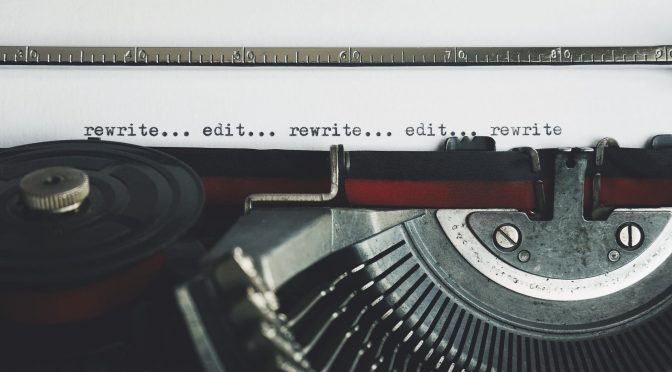My Writing Process
In the previous posts in this series, I discussed the intrinsic value of writing, the benefits to me, and the approach that liberated me from my inhibitions. In this post, I’ll cover the actual process I followed to get through the first draft.
While I had been planning a novel since July, 2020, my friend and frequent writing partner, Jaq Greenspon, posted that he was going to write for NaNoWriMo. I had avoided it before but the timing seemed right, so I committed also. I started daily writing sessions in October to plot out the novel. I’m not a joiner normally but I figured I’d just go along with the workshops and chats. It helped to know that I wasn’t the only one in my particular boat. There were many boats: young, old, professional, amateur, serious, fantasy, and serious fantasy.
Set Meaningful Goals
I knew I wanted to write every day as a form of creative therapy: scratch the creative itch, get into the zone, and start the day with something for me. To be effective, it needed only to be consistent. My unifying goal was to sit down every day as a writer. I could write anything. I could make notes, research, or even read for fuel. What I did as a writer was up to me. The NaNoWriMo part and the novel itself was what presented itself as an opportunity.
For NaNoWritMo, I adopted the 50,000-word in 30 days goal. It was just to see if I could sustain it. When I hit that goal in November, I decided to revise my goal for December to hit 85,000 words. I based that on my progress and how far I thought the novel would go to be complete.
The main challenge to consistent practice is dealing with blocks.For those you need a strategy.
Plotting to Avoid Blocks
I didn’t want to get too hung up on tools – every writer has a story about missing the proper pen. I liked using Google Docs for the early process because it was accessible everywhere and backed up immediately. However, it lacks any kind of organization tools. I wanted to stay with an online resource. I looked at several writing tools before deciding on Dabble because it’s non-intrusive interface and the plot grid integrates with the manuscript for drag and drop restructuring.
In October, I had note cards with all the major beats of my story. I used the hero’s journey and specifically the Fabula Framework deck to build out the grid. At first it was all on poster board, then I added it to Dabble’s plot grid. It made it easier to manage the timelines for each of the main characters to maintain continuity.
Having the beats outlined meant I had some idea of what came ahead. I could still change direction but it would be an organic part of the process. In fact, many times during writing, I would discover a perfect way to introduce a beat or a character that I would not have had were I just improvising completely.
The other value of having the beats was that when I found myself unsatisfied with what I was writing at the moment, I could switch to writing a different beat that session. I never lacked for ideas. And in this draft, every time that occurred, I ended up figuring out what was missing in the piece I shifted away from and was able to take a new approach that worked for it. Dabble also made it easy to reorganize the plot grid as I made discoveries in the writing.
Can I write when…
Along with maintaining momentum, the other challenge was dealing with my environment. I used another mind trick for that. For every challenge, instead of saying “Oh, crap!” I asked myself, “Can I write when…?”
- Can I write when I’m anxious?
- Can I write with interruptions?
- Can I write with noise in the other room?
- Can I write in total silence?
- Can I write when I’m tired?
- Can I write when I’m sick?
Every day brought another enemy and I defeated them all. Whatever I was feeling that day, positive or negative became another hypothesis for my writing experiment. One by one, I took what used to be excuses and eliminated them with experience.
Let the Characters Deal with the Conflicts
A typical momentum killer for me, is wondering what my characters should do. There are crossroads your characters reach and as the author, you need to know what they should choose. As an introvert, I can find this crippling because my mind is working out not just the choice at this turn but every turn that will come up on each path chosen. And that is a real conflict. And do you know what conflict is good for? Story.
Letting the characters deal with it became a valuable tactic for me. I knew I could always cut the content later if it didn’t have real drama, but letting the characters not only debate their options, but actually try them out became exciting for me to watch. And if it was exciting for me, there was a greater chance a reader might find it engaging.
Don’t Finish
This trick has sustained me for my technical writing career. If you want to keep going but time or energy has run out, then start the next thing. Avoid working to the end of a beat and instead work to the start of the next idea. Leave yourself hanging.
Leverage your mind’s natural desire to finish something by leaving it open. It will make you want to come back and finish it. What’s more, your brain will probably noodle on it in the background. You may even find you wake up with the solution to a problem right in your head.
I’ll often write a couple notes to myself of what’s next so that when I return, I’ve got an idea of where I left off and where I could go now. When you’ve had a full day of other headaches and problems between sessions, it is a relief to have a place to start.
Warm Up the Fingers
I used to write on yellow legal pads. I would write by pacing and thinking punctuated by putting my thoughts down on the page. That technique was not sustainable for my writing career. I am a touch typist, a skill that literally got me jobs working indoors; so, I’m my most comfortable writing with my fingers on a keyboard.
In fact, there are times I can’t think of what to write unless my fingers are poised over the home row. My brain has linked writing and typing in a major screw you to Truman Capote. So, another trick for me to get the brain warmed up is to leverage that link and get typing.
For this project, I kept a writing journal. Each session I started in the journal writing whatever came to my head. I’d look at yesterday and start talking to myself through the keyboard. Sometimes it would only be one line, “Let’s see what happens today,” and I’d be off. Other times, I’d talk through what was going on, or the challenge of the day, or the questions I wanted to answer in the session. At some point, I’d lose track or start to think of something in the story and then I’d switch over to the manuscript. Boredom or frustration were my guides.
Because It’s There
I’m currently reviewing the first draft. I’ve told myself the story and now I need to look back for those things that were true when I started that are no longer true now that I’ve reached the end. This is not a revision. It’s a clean up for continuity and clarity only.
For reasons you may have just read, one of my inhibitions to putting my work out there is fear that it will be judged. I need to get feedback before I revise, but the process has prepared me.
If the work brings me joy, then I can be the guy that stacks up unpublished work like cordwood. It feels good to split the logs and stack them up, and you can bask in the warmth when you burn them.
The idea of putting myself out for judgement when I’m my own harshest critic, doesn’t sound any better now that it did before I wrote a novel. However, it’s no longer an idea that is too beautiful to capture, that I can tear apart before it gains life. It is a living, breathing noun that I have poured love into. I know it better than anyone and even if it’s a face only a parent could love, I do.





